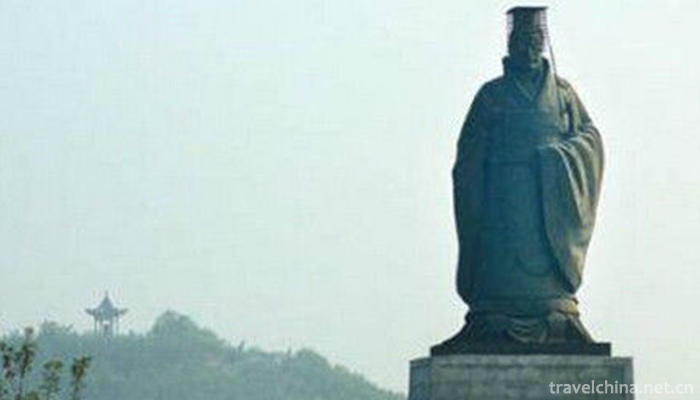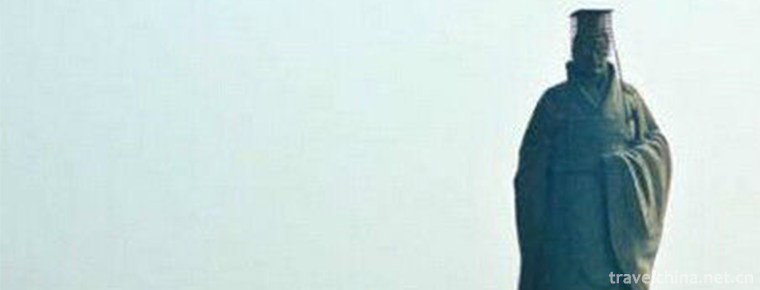Legend of Su Xian
Legend of Su Xian
The legend of Suxian is a local folklore with a long history. Su Xian, Ming Lian, from Guiyang. Su Da lost his father in his early years and depended on his mother for his life. One year, the plague was prevalent. He and his mother used orange leaves, roots and well water to prepare Marling peach stone decoction, which saved the patient. Following Taoist priests, he traveled, and folklore told him that he had crossed the crane into an immortal.
On November 11, 2014, the legend of Suxian declared by Suxian District, Chenzhou City, Hunan Province, was approved by the State Council to be included in the fourth batch of national intangible cultural heritage lists in China.
historical origin
"The legend of Su Xian" is a legendary group whose main content is to narrate the core motifs of Su Yan's miraculous birth, deity deer feeding, filial piety to his mother, orange planting to dispel epidemics, and getting Tao to become immortal. Jin Gehong's "The Biography of Immortals" has been described, and it has been recorded in Taoist books and notebooks since then.
"The legend of Suxian" is a folk story that happened in Chenxian County of Guiyang Prefecture in the Western Han Dynasty (now Suxian District, Chenzhou City, Hunan Province). Zhongsu delayed, a young herbal medicine doctor in Chenxian County, lost his father and became an orphan in his early years. He worked with his mother to be filial, to be close to his neighbours, and to cure illness and save people. Later generations said that: Pan Girl was pregnant before marriage, the old woman forced her daughter to abandon her son, the female Tibetan son in the cave, the crane guarded the deer's milk; the orphan Su delayed cattle chopping firewood, planting oranges to collect medicine, filial piety to support her mother; and then the Tao ascended to immortality. Mother: There will be an outbreak of plague in the world next year. Mother is invited to boil orange leaf medicine soup with well spring in the courtyard, which can save the county people. In the second year, as Su Da predicted, the plague raged; Su Da, according to Su Da's instructions, boiled medicine day and night, saving countless people. The story spread to the Tang and Song Dynasties. In the 29th year of Kaiyuan (741), Emperor Xuanzong of the Tang Dynasty issued an imperial decree that "make full use of the glory and decorate the ancestral temples strictly." Ma Ling Mountain, which was born and collected medicine by Su Da, was classified as "the eighteenth blessed land under heaven" by Taoism. The mountain was renamed Su Xianling by the people, and the well was called "Orange Well". Du Fu, Yuan Jie, Qin Guan, Xu Xiake and Pu Songling wrote poems. In the Song Dynasty, four emperors pardoned Su Duan as "the real man" and "the real monarch". In Song Zhenzong's poems, "Tangerine Spring is fragrant with gusto", and then a medical and forestry allusion of "Tangerine Spring Fragrance" came into being in the middle of the country. It has a long history and a clear line of inheritance.
Inheritance Significance
The legend of Su Xian has remarkable regional characteristics. It bears the unique cultural implications of filial piety, Taoism and traditional Chinese medicine. It has far-reaching influence and is deeply loved by the people. It is still vividly inherited among the people of Chenzhou today.
Current situation of inheritance
The legend of Suxian spreads from Chenzhou to other provinces. It is said that Maling Mountain, the birthplace of Suxian, was classified as a blessed place by Taoism. After the Song Dynasty, the medical and forestry allusions of "Orange Well Spring Fragrance" and "Longpan Orange Well" were formed. The legendary landscapes of Xiantaoling, Bailudong, Crossing Hetai, Suxianqiao, Suxianguan and Feishengting Pavilion are well preserved. Suxian Temple Fair is held every year on May 15, the fifteenth day of the lunar calendar. The legends of Su Xian were handed down orally by the people of Chenzhou in the past dynasties. Taoist classics, notebooks, medical books and similar books all have detailed records of Su Lai legends. Many famous poets, such as Du Fu, chanted Tang Jing. Four emperors in the Song Dynasty pardoned Su Lai as "real man and real emperor", and Song Zhenzong's poems "Tang Jing Gan Quan is full of gall fragrance" formed the medical allusions of "Tang Jing Quan Fragrance" and "Longpan Orange Well". From the literature records of past dynasties, the integrated information of folk tales and the recently orally collected legends of Suxian, the legends of Suxian have evolved many types in the long-term historical evolution, such as the type of pregnancy, the type of orange planting, the type of filial piety seeking mother, the type of immortal fighting, and so on. The number of variants is abundant. The legend of Su Xian contains filial piety culture, doctor's idea of saving the world by hanging a pot, Taoist thought of harmony between man and nature, and reflects the folk wisdom and cultural creativity of the people in Nanling region. The people of Chenzhou have been fond of talking about the legend of Suxian in the past dynasties. Suxian ascended to heaven and earth-Suxianling has become a national scenic spot. Every year, many tourists appreciate the charm of Suxian legend through oral transmission, images and words. The legendary "orange well" has become a symbol of traditional Chinese medicine. The culture of orange well formed by legend not only spreads all over the north and south of China, but also radiates influence on Japan, Korea and Vietnam. In other countries, overseas Chinese set up "Orange Well Clinic" in Chinatown, Cambodia has "Orange Well Province". Libraries of France, Austria, Russia and Japan all collect relevant materials of "Su Da Orange Well". Matteo Ricci, an Italian missionary in Ming Dynasty, talked about "Orange Well and Apricot Forest for Medical Records" in China. The legend of Su Xian has important folklore, religion, medicine, literature and art, tourism and so on.
On November 11, 2014, "The Legend of Suxian" was listed in the fourth batch of "National Class of Non-material Cultural Heritage Representation Projects" in China.


-
1.Fang te tourist area
Fang te tourist area is elaborately built by Huaqiang Fontewen Technology Group. It is a comprehensive leisure tourism resort integrating theme parks
Time 2018-12-08 -
2.Futian Shangri La Hotel Shenzhen
The second Shangri-La Hotel Group, Shenzhen Futian Shangri-La Hotel, is located in the downtown area of Futian Business District. It can easily reach Shenzhen Convention and Exhibition Center, large s
Time 2018-12-16 -
3.Shanghai Zoo
Shanghai Zoo is located at 2381 Hongqiao Road, Changning District, Shanghai, which is close to Shanghai Hongqiao International Airport. Founded in 1954, originally known as the West Suburb Park. Shang
Time 2018-12-19 -
4.Vinegar garden in East Lake
Donghu Vinegar Garden is located at No. 26 Madaobo between Dongshan Expressway and Jianbei Road in Taiyuan City. It covers an area of more than 20,000 square meters. Shanxi is most famous
Time 2018-12-20 -
5.Zamuni of Tibetan Nationality Playing and Singing
"Zamuni" is also called the Six Stringed Orchestra, a traditional Tibetan plucked instrument. Mainly spread in Lhasa, Shannan, Ali, Lazi (Bahir), Sakya, Angren, Dingri and other places
Time 2019-04-15 -
6.Production Techniques of Black Tea
Qimen Black Tea is the only black tea among the top ten famous teas in China. It is produced in Qimen County, Anhui Province. Tea production in Qimen has a long history, which can be
Time 2019-05-03 -
7.Boxwood carving
Boxwood carving is one of the traditional folk carving arts in Zhejiang Province. It uses boxwood as carving material and uses the natural form of boxwood, which is smooth, delicate in texture and sol
Time 2019-05-04 -
8.Naxi Dongba Painting
Naxi Dongba painting is an important part of Naxi Dongba culture and art, which is spread in the ancient city area of Lijiang City and Yulong Naxi Autonomous County of Yunnan Province. During the ritu
Time 2019-06-07 -
9.Adjustment and suspension
Lifting is a unique folk sports event in Shaoxing City, Zhejiang Province. Appeared in the middle and late Qing Dynasty, the tuning and hanging actors were named "tuning and hanging" because
Time 2019-06-21 -
10.Small febrile coma
Xiao Redun is a kind of traditional Wu rhetoric banter popular in Jiangsu, Zhejiang and Shanghai. It is also known as "Xiaogongshu", commonly known as "selling pear ointment candy"
Time 2019-07-06 -
11.Jiufeng Mountain Scenic Area
Jiufeng Mountain is located in Dabao Township in the northwest of Pengzhou. It is about 97 kilometers away from Chengdu, with an altitude of more than 3315 meters. It is the crown of Pengzhou mountains, a sacred and mysterious area
Time 2020-11-05 -
12.Concept of Cheongsam
Whether "Qipao" refers specifically to the Qipao in the Republic of China or includes the "Qiren's Robe" or "Qinu's Robe" in the Qing Dynasty. The definition of the concept of Qipao is as controversial as the origin style of Qipao.
Time 2020-12-11